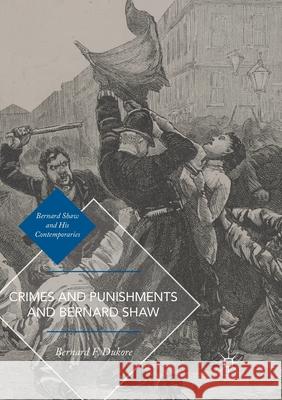Crimes and Punishments and Bernard Shaw » książka
topmenu
Crimes and Punishments and Bernard Shaw
ISBN-13: 9783319873824 / Angielski / Miękka / 2018 / 243 str.
Kategorie:
Kategorie BISAC:
Wydawca:
Palgrave MacMillan
Seria wydawnicza:
Język:
Angielski
ISBN-13:
9783319873824
Rok wydania:
2018
Wydanie:
Softcover Repri
Ilość stron:
243
Oprawa:
Miękka
Wolumenów:
01
Dodatkowe informacje:
Wydanie ilustrowane











